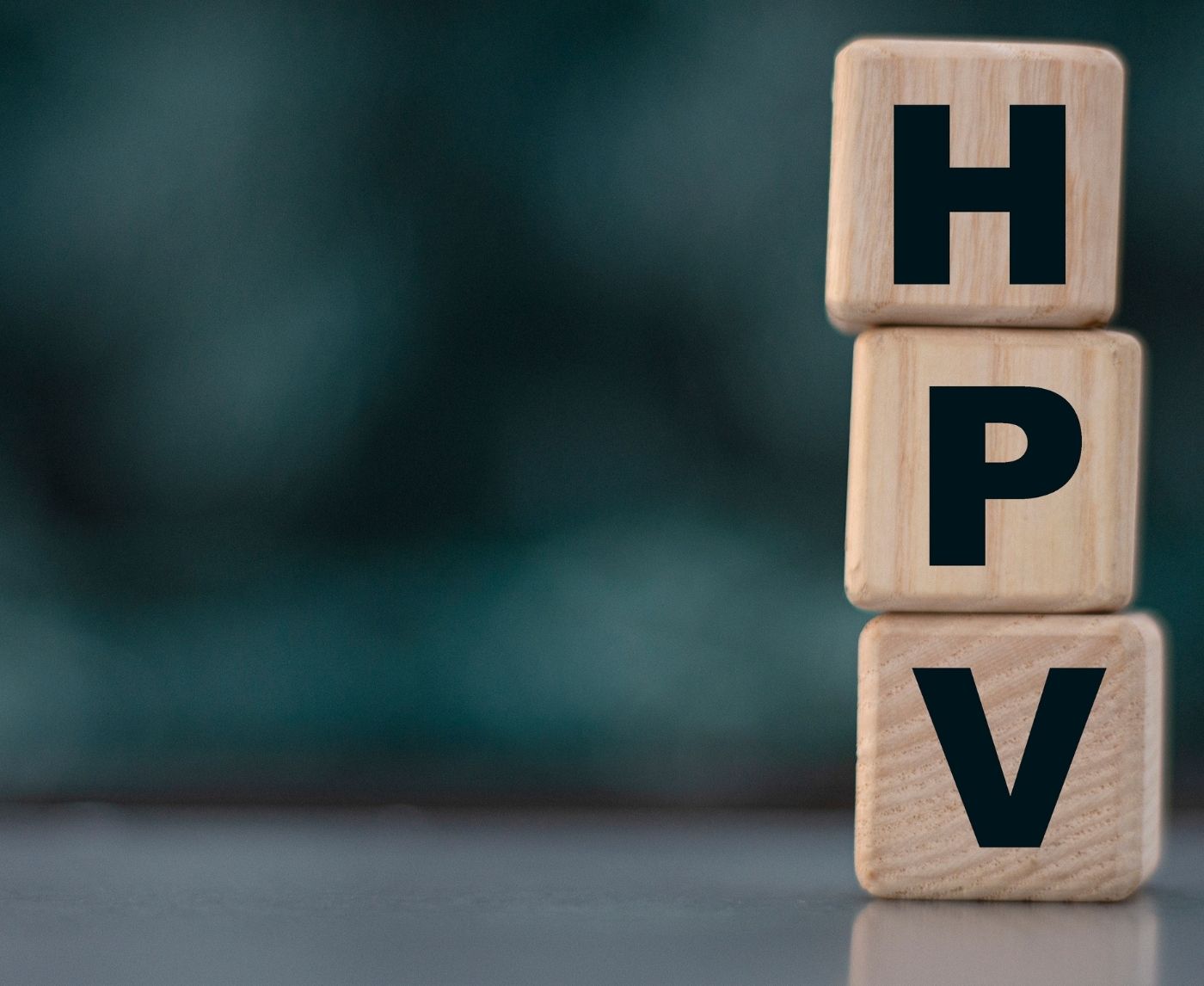Lesbian Sex Isn’t Risk-Free: What You Should Know About STD Testing
Quick Answer: HPV in men often has no symptoms, but it can still be passed to partners. Yes, you're at risk, especially if you've had skin-to-skin or unprotected contact. Testing, vaccination, and communication are your best next steps.
This Isn’t Just Her Diagnosis, It’s Yours Too
There’s a dangerous cultural myth that HPV is a “women’s issue.” Pap smears, cervical cancer, Gardasil ads, it’s all been marketed toward her. So when she tests positive and you feel totally fine, it’s easy to assume you’re off the hook.
But here’s the truth: HPV affects all genders. It’s skin-to-skin, often symptomless, and incredibly common. The CDC estimates that nearly 80% of sexually active people will have it at some point. That includes you, whether you’ve seen a wart or not.
If you’ve had genital, oral, or anal contact with someone who tested positive, even just once, you’ve been exposed. And while some people clear the virus naturally, others carry it without symptoms for months or years. That’s how it spreads.
One man we spoke to, James, 31, found out his girlfriend had HPV after a routine pap.
“I didn’t feel anything. No itch, no bumps. But I still freaked out. I thought, ‘Did I give this to her? Did she get it from someone else?’ It messed with my head more than I expected.”
That kind of panic is real. So is the shame. But what most men don’t know is that there’s a path forward, and it starts with facts, not fear.
So take a breath. You’re not dirty. You’re not doomed. And you’re definitely not the only guy googling this at 2AM.

People are also looking for: My Partner Has HPV. Am I at Risk, And What Should I Do Next
“But I Feel Fine”, Why That Doesn’t Mean You’re Clear
The most common response we hear from men after a partner’s HPV disclosure? “But I don’t have any symptoms.” And that’s fair, most men don’t. But that doesn’t mean you’re not infected. It just means your body isn’t showing it in a way you can see or feel.
According to the Centers for Disease Control and Prevention (CDC), most men with HPV never develop symptoms. In fact, many carry the virus for months or years without knowing it. You can pass it on without a single wart, itch, or clue.
So if you’re silently hoping for some obvious sign to show up before taking it seriously, you may be waiting forever. That’s why it’s critical to think about prevention, not just reaction.
Mike, 26, put it this way:
“I assumed STDs would announce themselves, you know? Like pain, pus, something gross. But HPV? It just hangs out quietly while you go on with your life.”
That’s exactly how it continues to spread. Especially among men who never realize they’re part of the chain.
What You Probably Weren’t Told About Male HPV Testing
Here’s another hard truth: there’s no standard HPV test for men. Let that sink in. You can have a virus that causes cancer, spreads through any kind of sex, and you can’t even test for it, unless it shows up as genital warts or you're part of a high-risk group eligible for anal screening.
There’s no routine test at the doctor’s office. No urine sample. No swab they casually offer during a checkup. And no way to confirm you’re “clear” unless symptoms physically appear.
That’s not your fault. It’s a gap in the system, and it’s one reason HPV continues to fly under the radar for men. If your partner hadn't tested positive, you might never have known to ask.
This lack of male-focused care leads to more than just ignorance, it leads to shame. It turns HPV into a “her” problem instead of an “us” reality. But if you’ve been sexually active, there’s a very real chance you’ve carried it, passed it, or are still holding onto it without knowing.
What If I Gave It to Her Without Knowing?
This is the question most men are too ashamed to say out loud. What if I gave her HPV? What if I’ve had it for years? What if I was the one who started all this?
It’s a painful thought, but here’s the truth: you may never know where it started. That doesn’t make you guilty. That doesn’t make you dirty. It just means you’re human, and you’re part of a sexual ecosystem that most of us were never taught how to navigate.
Studies show that men are often long-term silent carriers of HPV. The virus can linger undetected for years before it ever causes symptoms, if it ever does at all. You might have picked it up from a partner five years ago. She might’ve picked it up and cleared it, then got re-exposed. This isn’t about blame. It’s about biology.
As Jon, 34, put it:
“I wanted to apologize to her, but I also didn’t even know I had anything. I felt like I had failed some invisible test I didn’t even know I was taking.”
That grief is real. But the solution isn’t shame, it’s information, testing, and honest conversations moving forward.
HPV Isn’t Just a “Down There” Problem
Most people associate HPV with cervical cancer. But men are at risk too, especially for throat, penile, and anal cancers. The American Cancer Society confirms that HPV is now the leading cause of oropharyngeal (throat) cancers in men.
This matters even more if oral or anal sex is part of your sexual routine, especially within queer, bi, or pan relationships, where male-male transmission is often overlooked by mainstream advice.
And again, these risks don’t come with warning signs. No pain, no burning, no obvious infection. Just a slow, quiet erosion if left unchecked.
We’re not saying this to scare you. We’re saying it to empower you. Because once you understand what HPV does, you can start doing something about it.
The Vaccine Isn’t Just for Teens, or Women
If you’re under 45, you may still be eligible for the HPV vaccine. Gardasil 9 is FDA-approved for people of all genders, and it's one of the best tools we have to prevent the strains of HPV that cause most cancers and genital warts.
Think it’s “too late” because you’re already sexually active? Think again. According to CDC recommendations, vaccination can still offer protection against strains you haven’t yet been exposed to. It's especially important for men with multiple partners, or anyone in a community with lower vaccine rates.
This isn’t just about protecting yourself, it’s about protecting your partners too.
So if your partner has HPV and you’re scared, confused, or stuck in shame… start here. Ask your doctor about the vaccine. Get real about testing. And remember, it’s not your job to be perfect. It’s your job to be informed.

People are also reading: Florida’s HIV Crisis by the Numbers: Who’s Most at Risk and Why It’s Rising
This Isn’t the End of Intimacy, It’s the Start of a Better Conversation
So many men freeze up when they hear the words “I have HPV.” Not because they don’t care, but because they don’t know what to say next. It feels heavy. Embarrassing. Maybe even like a breakup waiting to happen.
But here’s what that moment can actually be: a doorway to deeper honesty. Real intimacy. And yeah, a bit of awkward learning, but also something way more important: trust.
Ty, 28, told us:
“My girlfriend was so scared I’d judge her. When she told me she had HPV, I could see how hard it was for her. But I was just glad she trusted me enough to tell me. That changed everything.”
You don’t have to be perfect in that conversation. You just have to show up. Say something simple like, “Thanks for telling me. I want to understand this better so we can figure it out together.” That one sentence is more powerful than a dozen test results.
Because here’s the truth: HPV isn’t a moral failure. It’s a biological one. You didn’t mess up by catching it. She didn’t mess up by disclosing it. And neither of you deserves to carry the weight of silence when you could be carrying this together.
This isn’t the end of your sex life. It’s the beginning of a more informed, less shame-filled one. And honestly? That’s a hell of a thing to build from.
FAQs
1. Can men have HPV and not know it?
Yes. Most men who have HPV don't have any symptoms and don't know they have it. But they can still give it to their partners.
2. Is it possible for a man to get tested for HPV?
There isn't a standard HPV test for men. Some doctors may offer anal pap smears to patients who are at high risk, but most people don't get them on a regular basis.
3. Can I still get HPV if I don't have any warts?
Yes, for sure. HPV can spread from skin to skin without showing any signs.
4. Could I have had HPV before this relationship?
Yes. HPV can stay in the body for months or even years without causing any symptoms. That's why it's almost impossible to know when or how it was passed on.
5. Can HPV give men cancer?
Yes. In men, HPV can lead to cancers of the penis, anus, and especially the throat (oropharyngeal).
6. Does the HPV vaccine work for adult men?
Yes. Gardasil 9 may help men up to age 45, even if they have already had sex. It protects against several strains that are very dangerous.
7. Can I get HPV from oral sex?
Unfortunately, yes. HPV can totally spread through contact between the mouth and the genitals, and is, in fact, linked to some types of throat cancer.
8. Should we stop having sex if my partner has HPV?
Not always. See a doctor. Condoms can lower the risk of getting HPV, but they can't stop it completely. Vaccination and honest communication are very important.
9. Do all types of HPV cause cancer?
Most of them don't. Some strains cause genital warts, and others are "high-risk" for cancer.
10. Is it possible for me to get rid of HPV completely?
Over time, many people's immune systems naturally get rid of HPV. But there is no treatment that will definitely get rid of the virus.
You Deserve Answers, Not Assumptions
If your partner told you they have HPV, you’re probably carrying a mess of emotions, confusion, guilt, fear, even shame. But you don’t have to sit in the unknown. You deserve answers. You deserve support. And you deserve to protect yourself and the people you love.
HPV doesn’t make you dirty. It doesn’t mean someone cheated. It means you’re human, and you’ve lived. What happens next is what counts.
Sources
1. American Cancer Society – HPV and Cancer






